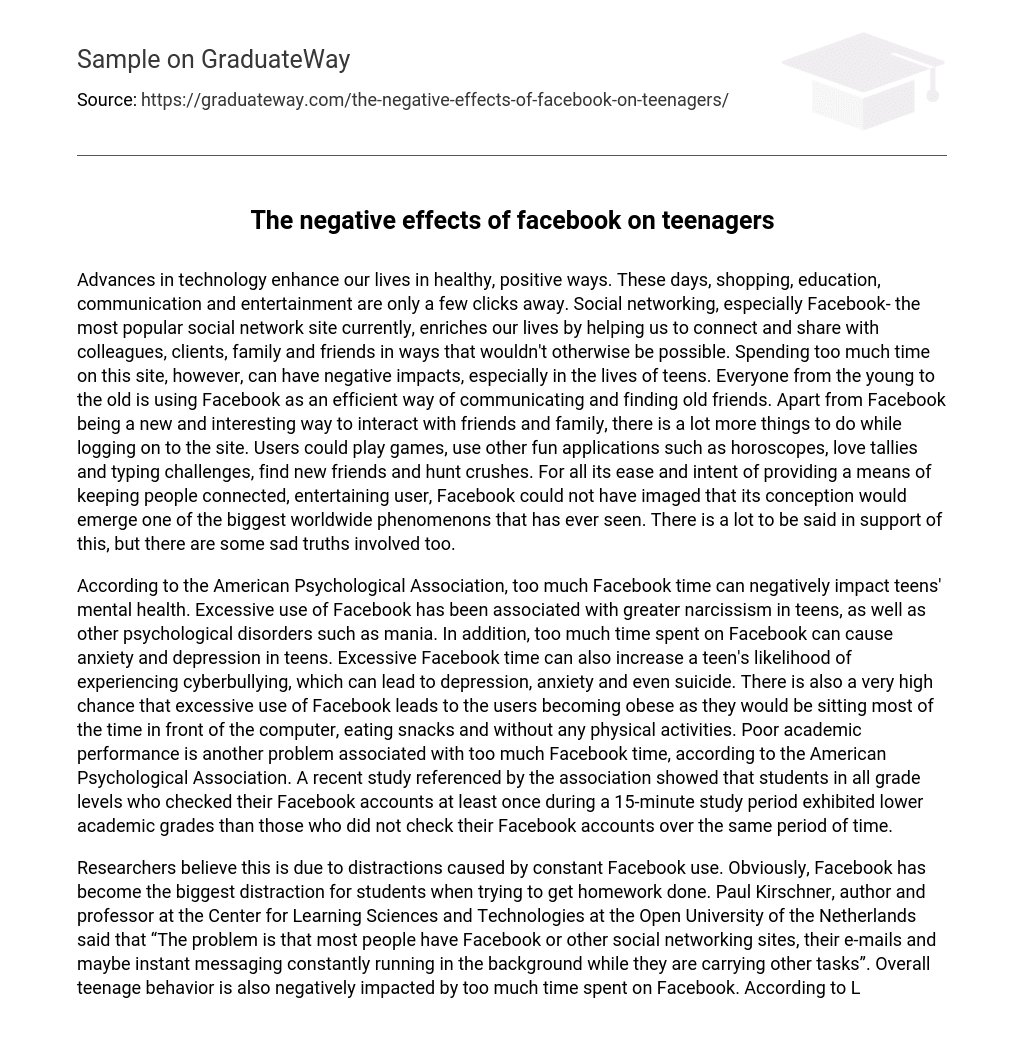Advancements in technology have greatly improved our lives by making activities like shopping, education, communication, and entertainment easily accessible with a few clicks. Facebook, the most popular social networking site, allows us to connect and share with colleagues, clients, family, and friends like never before. However, excessive usage of Facebook can negatively impact teenagers’ lives.
In addition to facilitating interaction with loved ones and reconnecting with old acquaintances, Facebook offers various enjoyable activities such as games and engaging applications like horoscopes and typewriting challenges. It even helps users find new friends or secret admirers. Originally created for efficient connection and entertainment purposes, Facebook has become one of the biggest global phenomena to date. While there is much praise for this platform’s merits, there are also unfortunate realities associated with it.
According to the American Psychological Association, excessive use of Facebook by teenagers can have detrimental effects on their mental health. Research indicates that spending too much time on this social media platform is associated with increased narcissism and the development of psychological disorders like mania in adolescents. It can also lead to feelings of anxiety and depression.
In addition, spending excessive time on Facebook increases the risk of cyberbullying for teenagers, which can result in depression, anxiety, and even suicide. Moreover, overindulging in Facebook usage may contribute to physical health issues such as obesity due to a sedentary lifestyle and unhealthy snacking habits.
The American Psychological Association further highlights that excessive Facebook use negatively impacts academic performance among teenagers. A recent study cited by the association found that students who checked their Facebook accounts during a 15-minute study session achieved lower grades compared to those who refrained from checking their accounts during that same period.
Constant use of Facebook is causing distractions, particularly for students completing homework. According to Paul Kirschner, a professor at the Center for Learning Sciences and Technologies at the Open University of the Netherlands, many people keep social networking sites like Facebook open while multitasking, leading to negative effects on teenage behavior. Larry D. Rosen, a Ph.D. Professor of Psychology at California State University also points out that this behavior can result in antisocial and aggressive behavior in teenagers.
Besides impacting behavior, excessive daily use of Facebook among teenagers has been linked to risky behaviors such as smoking, drug use, alcohol consumption, and promiscuous activities. Additionally, using Facebook excessively is associated with irresponsible spending habits among targeted unaware teenagers who are exposed to advertisers on the platform.
However, savvy users can make the most of Facebook’s convenience by treating it as a double-edged sword. The level of addiction depends on an individual’s ability to regulate their usage time.





